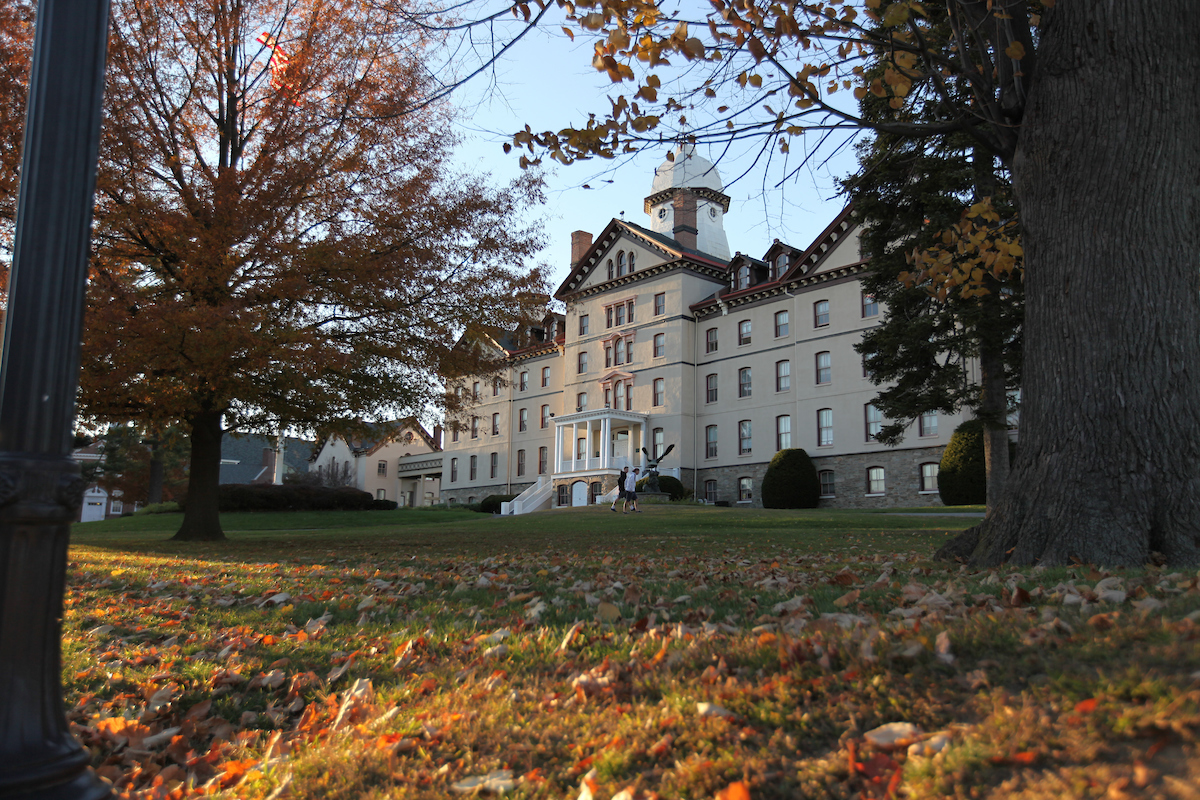
This story is part of Grow PA, a reported series on economic development across 10 Pennsylvania counties supported by the Chamber of Commerce for Greater Philadelphia. Sign up for our weekly curated email here.
There are robots that are dexterous enough to screw in lightbulbs now. Robot chefs that can learn recipes by watching YouTube videos, warehouse robots that can sort products and military robots that go where no soldier should.
The robotics industry is reportedly now worth $24.5 billion. In five years, that figure is expected to double. That’s just about when Widener University’s inaugural class of robotics engineering majors will be graduating with their undergraduate degrees and, hopefully, co-op experience at one of the Chester, Pa.-based university’s corporate partners.
According to Widener, the program will be the region’s first undergraduate robotics degree. (While Drexel and Penn both offer degrees in engineering, both are graduate programs.)
“We saw an area for growth where we can be leading,” said Dr. Fred Akl, dean of Widener’s engineering school. “Widener University is always looking forward to how we can put programs in place that serves the current generation and future generations. We’re always trying to keep our hands on the pulse of what’s going on and what’s expected to happen.”
As high as the growth potential for robotics is, the field is not free of criticism nor anxieties, particularly pertaining to job loss: Accounting and consulting firm PwC released a report earlier this year that claims 38 percent of U.S. jobs could be at risk of automation in the next 15 years.
“I think with the introduction of any new technology, there’s always going to be economic adjustment and retraining,” said Akl. There are jobs to be lost, he said, especially those that are mundane, routine or dangerous — but there also are jobs to be created.
Especially in the defense industry, warehousing and pharmaceuticals. Education, Akl argues, just needs to catch up with private sector innovations.

Widener’s Fred Akl. (Courtesy photo)
“With any new discipline or technology, it’s not unusual,” said Akl, who said he has watched enrollment in engineering at Widener triple and gender diversity among engineering students equalize in the 20 years he’s spent at the university.
“It happened with biomedical engineering: First, the research starts in earnest with Ph.D. programs and master’s programs, in order to develop the technology fully, to explore and test.”
Once the technology is better understood on an institutional level, Akl said, there’s a potential for real, everyday applications (think Roombas).
“There’s a need for a bachelor’s degree that can help further manufacturing, designing, engineering,” he said. “The research at the graduate level is needed to be able to teach the next generation.”
Widener’s first class of next-generation roboticists is anticipated to hold 20 students who, in their four years of undergraduate studies, will have opportunities to engage with employers and executives along the East Coast and work closely with faculty and alumni outside the classroom.
[googlemaps https://www.google.com/maps/d/u/0/embed?mid=1fAjLwwFCWeFH3RWL0dxRnqZF5y4&w=300&h=150]
Join the conversation!
Find news, events, jobs and people who share your interests on Technical.ly's open community Slack

Philly daily roundup: Jason Bannon leaves Ben Franklin; $26M for narcolepsy treatment; Philly Tech Calendar turns one

Philly daily roundup: Closed hospital into tech hub; Pew State of the City; PHL Open for Business

A biotech hub is rising at Philadelphia’s shuttered Hahnemann Hospital campus

